#BLM Memoir
When the First Voice You Hear is (Probably) Not Your Own: Intersectionality & Activist Research in the M4BL
February 7, 2018
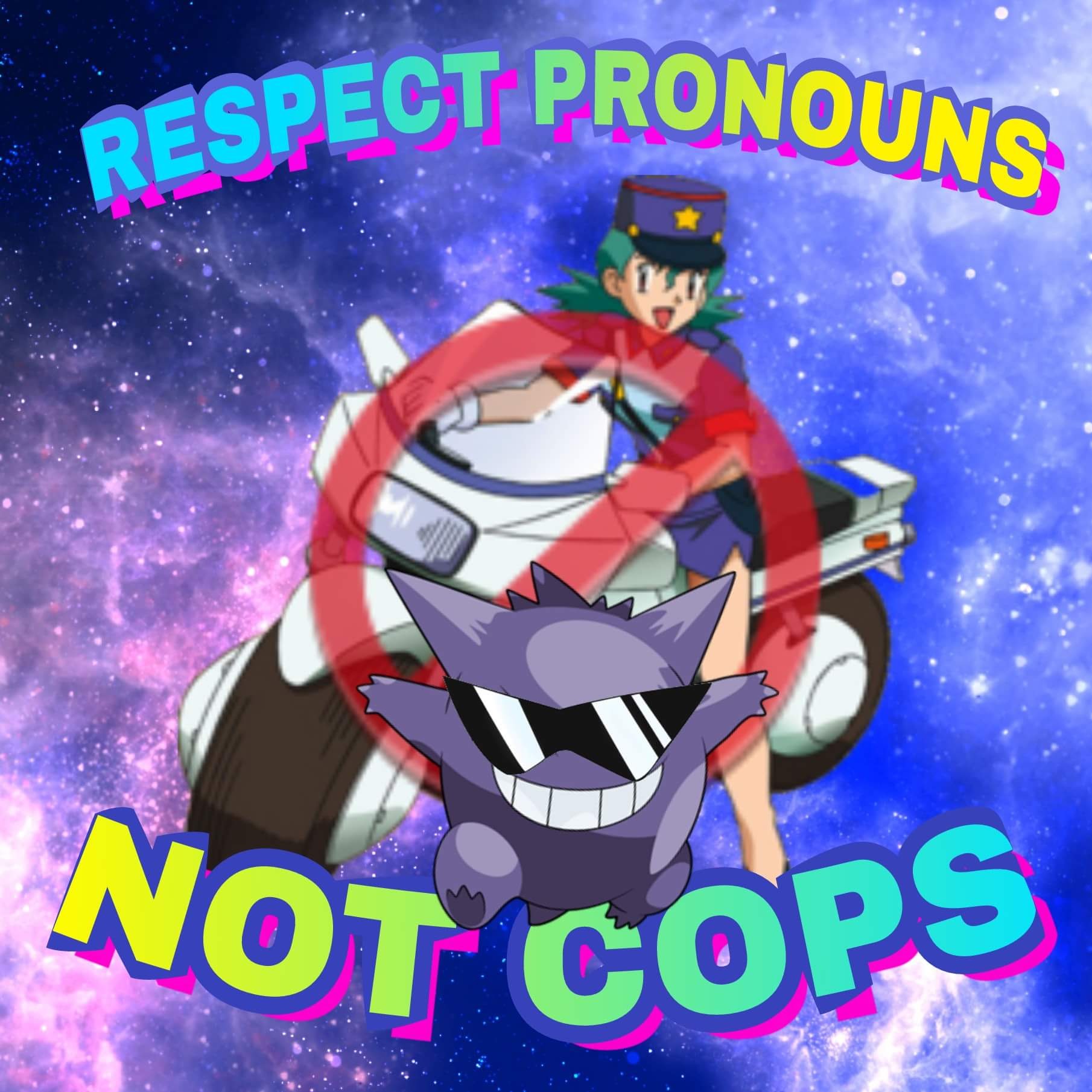
by @femmeformemes
I wish I had a memory like this:
Me, shoulder-to-shoulder with others opposing police violence, hoisting poster boards with hand-painted letters making names, slogans
Or:
A blockade of my white friends in masks and beanies, black jeans, boots, cracking windows of banks that invest in prisons
Or:
Sprawling over littered carpets at one of the punk houses off of Montford Ave., painting a banner in Spanish, biking through town with pink & black letters trailing from my shoulders

by @femmeformemes
In fact, I have very few. Since 2013, I’ve been sick with something that feels like it’s eating away at my collagenous body: my brain, spinal tissue, joint, and bendy bits. Late-stage Lyme Disease, Myalgic Encephalomyelitis/Chronic Fatigue Syndrome, Fibromyalgia. It’s difficult to admit this: everyone has opinions about what it is and what to do about it. It’s turned me into less of an activist, the kind who can barely pull off a semester’s worth of leaving the house. When Patrisse Khan-Cullors speaks of her brother Monte and his unmedicated—and then overmedicated—schizoaffective disorder, I know I am lucky to be mentally ill in my white skin, in mostly ways worthy of social pity, social clucking and fussing, or sane enough to get ignored, or at least forgotten.
And in fact, a side effect of both my illness/es and my medications is memory loss.
(What was I saying?)
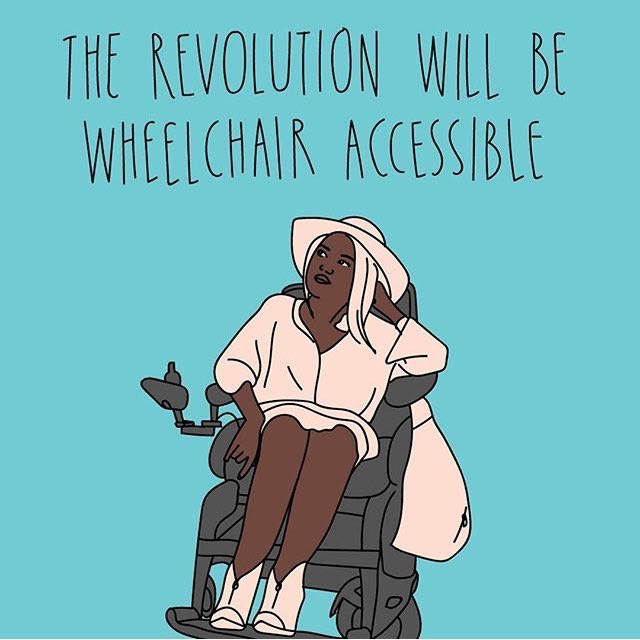
by The Equality Institute
Back before I was sick, just after Trayvon Martin was gunned down but before Sandra Bland, Eric Garner, Erica Garner, Muhiyidin d’Baha and still more were murdered, I spent two years working as a small group facilitator with Building Bridges of Asheville, a community education organization that held twice-yearly 6-week seminars on “race relations.” The administrators would split up participants into small groups with two group facilitators, who would guide the discussions on contentious topics such as mass incarceration, race in the media, and race in religion.
When I started with BBA, the newest Chair was a Reverend of a respected local church. Her smile was intoxicating, as was her charisma, but she steered the organization closer and closer to an implicitly Christian ethos that put off me and several of my young anarchist friends I had recruited into the workshop. Soon, we asked for a sit down with the Chair to address our growing concern surrounding the desecularization of the organization. Soon after the sit down, I stepped back from working with BBA.
With a newfound anti racist organizing gulf in my life, I scrambled to figure out how best to use what I had in a productive way: teaching, organizing, sharing food and space, collecting the articles I gulped down whole into a syllabus or at least a reading list.
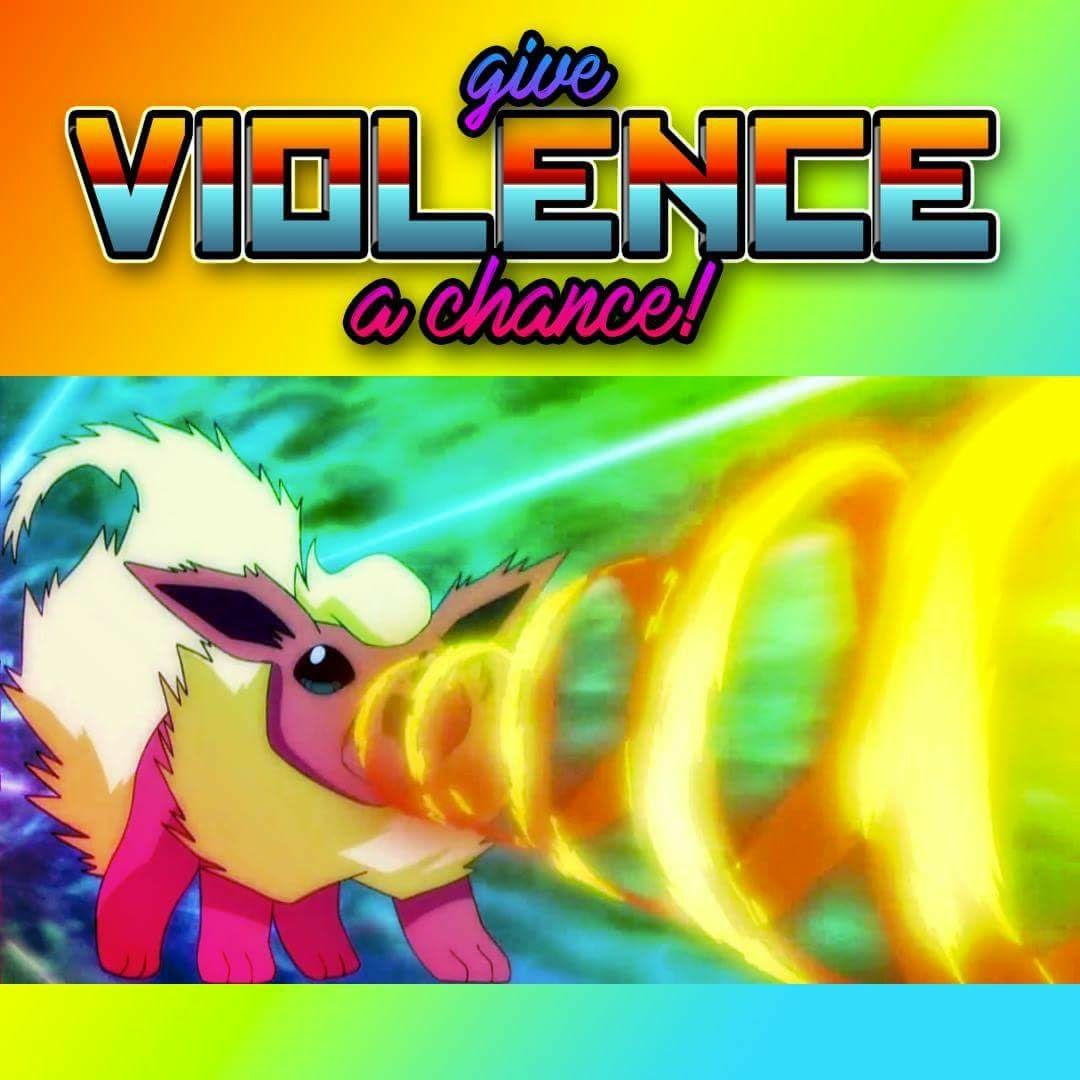
by @femmeformemes
So that’s what I did: every two weeks for almost a year, I swept my one-bedroom public-housing apartment and cracked windows all down the windowed edge of the apartment, letting in the smells of snow and letting out the dust. I would pull down a jar of my homemade canned salsa, made from a friend’s organic tomatoes and peppers, salty cilantro, and in an appropriately anarchist fashion, stealing printed copies from my university job, stealing organic chips from my Whole Foods job.
The back room of my apartment boasted two walls of windows and dumpstered furniture, a ramshackle coffee table drooping with zines and coffee mugs. I yanked Manila folders crammed with copies of the Invisible Knapsack, Ta-Nahisi Coates’s new Atlantic piece advocating reparations, the doll study from the teetering particle-board bookshelf. My research partner Donnell sprawled over the loveseat patches haphazard with duct tape; my partner Chett munched corn chips; my friend KT squinted at the admittedly janky reading list and yanked pen & notebook from the pocket of their Carhartts.
Despite my amateurish syllabus, for 3 months, the four of us set aside Tuesday evenings for each other. Despite family commitments, multiple jobs, childcare needs, chemistry exams the next day, sleep deprivation. Despite the deeply political nature of our myriad identities: trans, Black, queer, Jewish, white, (early stages of being) disabled. Despite that I continued to listen to Bangerz even after Miley’s racist-ass performance at the 2013 VMAs.
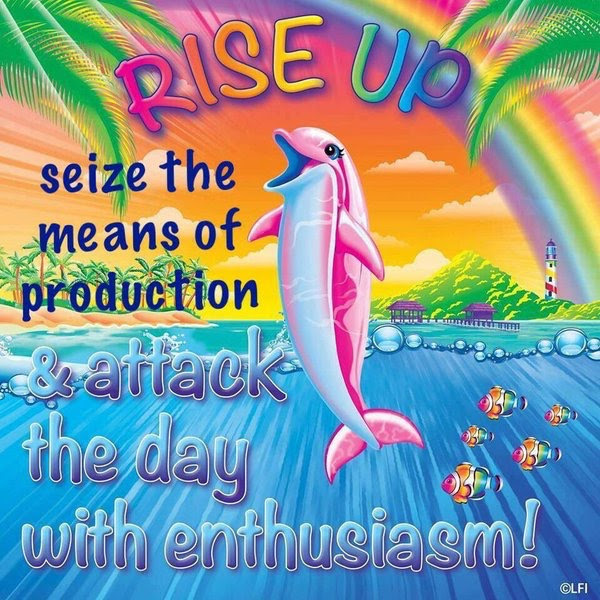
by LFI
Each week, we’d info-dump to each other as therapy—in North Carolina, Medicaid does not cover mental health care, sigh and shout and show up. With a bowl of my salsa—of which I am still proud!—and a bag of purloined chips, we showed up for one another, to mourn what toxic whiteness did to our selves, to each other, to our homes and country.
For three of us, we could have easily gotten away with ignoring all of this for the rest of our lives, never even experiencing a call-out surrounding our racism. Many white folks do exactly this, and they’re horrified and defensive if anyone challenges their ideological perspective that whiteness is untouchable in its objectivity, its goodness.
Knowing this shook my pedagogy to its core: transitioning as I did from a PWI in undergrad to teaching almost all Black and Brown students at City College required a massive shift in how I centered anti-racism in my teaching, and how I showed up in my courses towards my MA in Language and Literacy, also at CCNY.
I quickly became That Girl. You know the one: always being like, “that’s problematic,” arm shooting into the sky as soon as you-know-who opens their mouth to lament CCNY students’ bad English, or they’re not even ready for college!, or there are just so many errors! Insert eye roll emoji. You can guess the race of the folks saying this garbage.
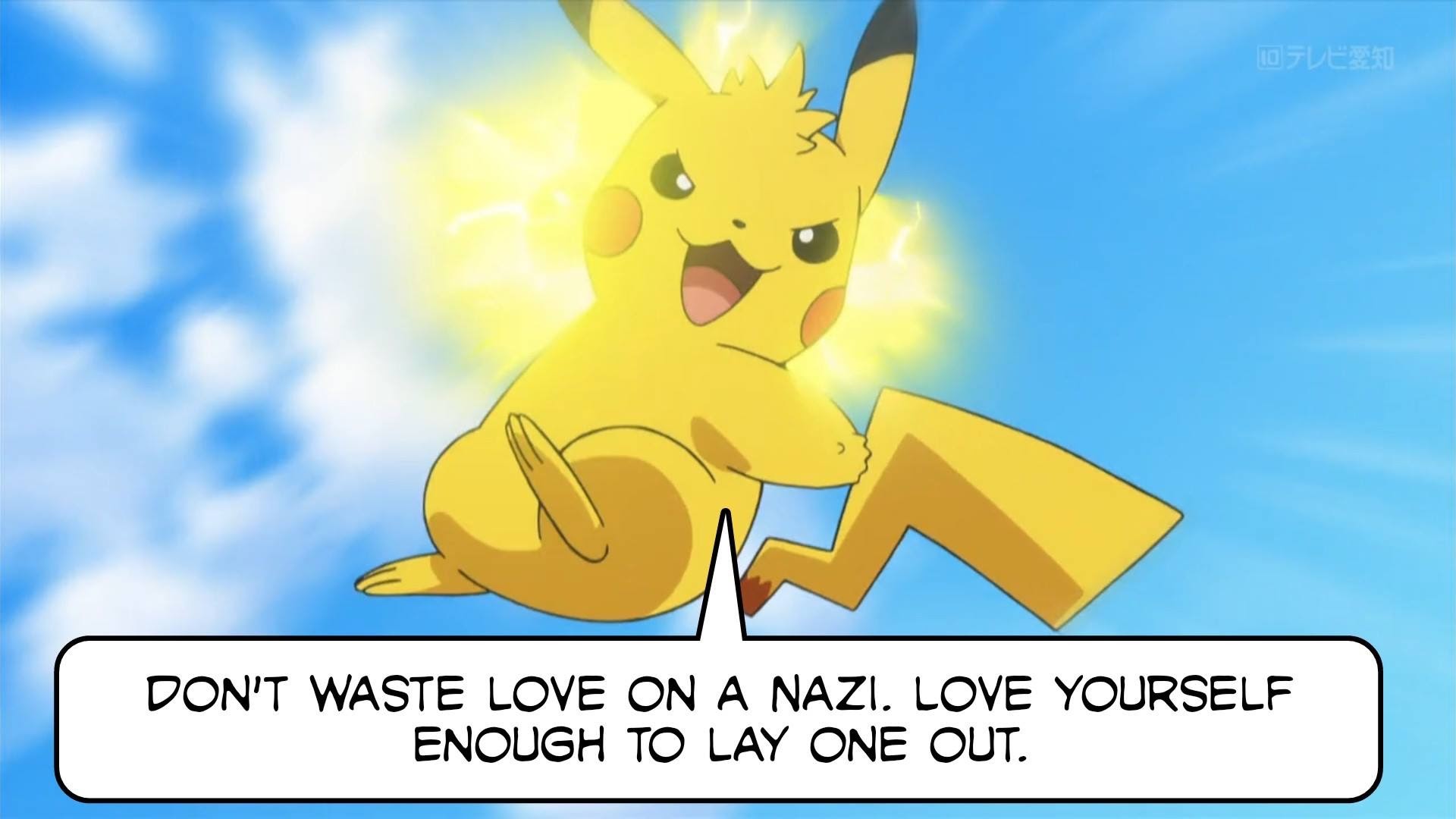
by Wokémon
My first day of class in the spring of 2017, three students who had arrived together before class began raised their hands to ask permission to converse in Bengali, their native language and the language they speak with their families. I was stunned: of course they could speak to each other however they chose! I curse and use slang, and I don’t self-censor around my students (OK, maybe a tad). They explained that in their 100-level course, and throughout their high school experiences, they had been punished for speaking a language other than English; indeed, previous instructors had referred to their classrooms as “English-only zones,” and students violating the policy were mocked and humiliated in front of other students for their accents, their “poor grammar,” and even how their other language sounded.
In consideration of my students’ experiences and my own growing interest in accessibility in pedagogy, I planned a Freshman Inquiry Writing Seminar (first-year composition course) centering texts by writers of color, immigrants, and queer and trans people and proposed it to the English Department as a hybrid course, emphasizing that online learning is more inclusive of students with trauma histories or other disabilities. The Department accepted my proposal, and in the fall 2017 semester, I taught CCNY’s first ever hybrid literature course.
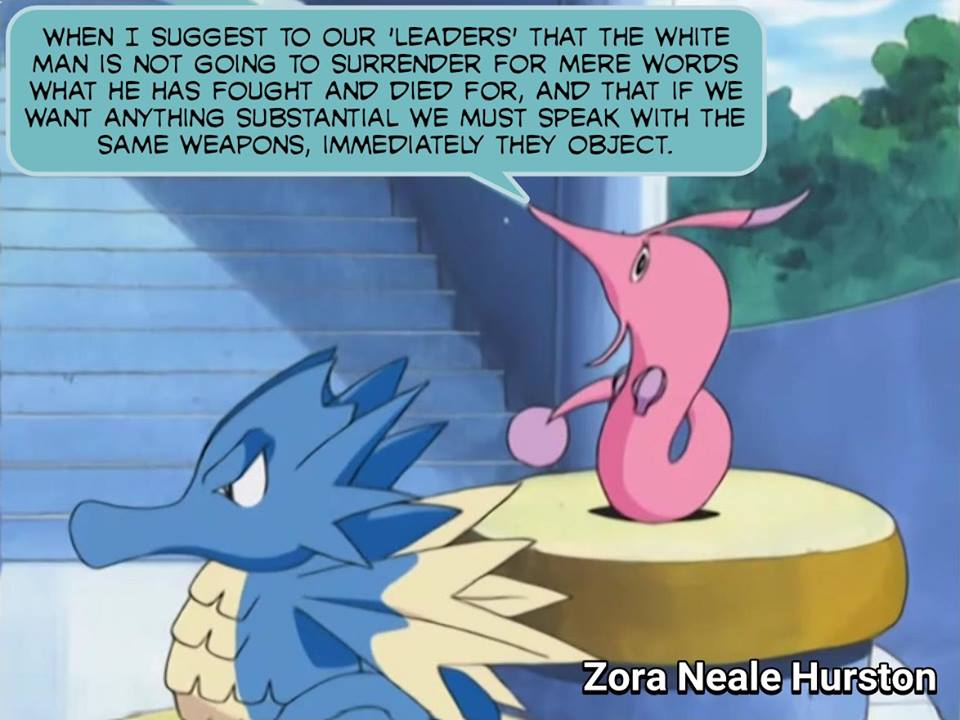
by Wokémon
English instruction still has loads of work to do in unlearning the oppressive systems we serve when we enforce linguistic hegemony, and any activist can speak to the slow speed of broad institutional change. In the meantime, however, we can adjust attendance policies, post lectures and readings online, cultivate a broad understanding of participation, hybridize classrooms, demand hybridized classrooms, and generally acknowledge the ways that the academy invalidates and excludes students with disabilities, trauma histories, and non-native English speaking identities (including other discourses!).
Considering my own experiences as instructor and student, white femme, queer crip, coupled with what I’m learning about student needs, I’ve worked with a multiplicity of pedagogical texts in the development of my political and intellectual identities. Melding rhetoric and writing studies with anti-racism with disability theory and digital humanities means that I’m situated in an exciting liminal space, and moving towards a new, hybrid understanding of rhetorical genre theory, embodiment & disability theory, and actual liberatory pedagogy.
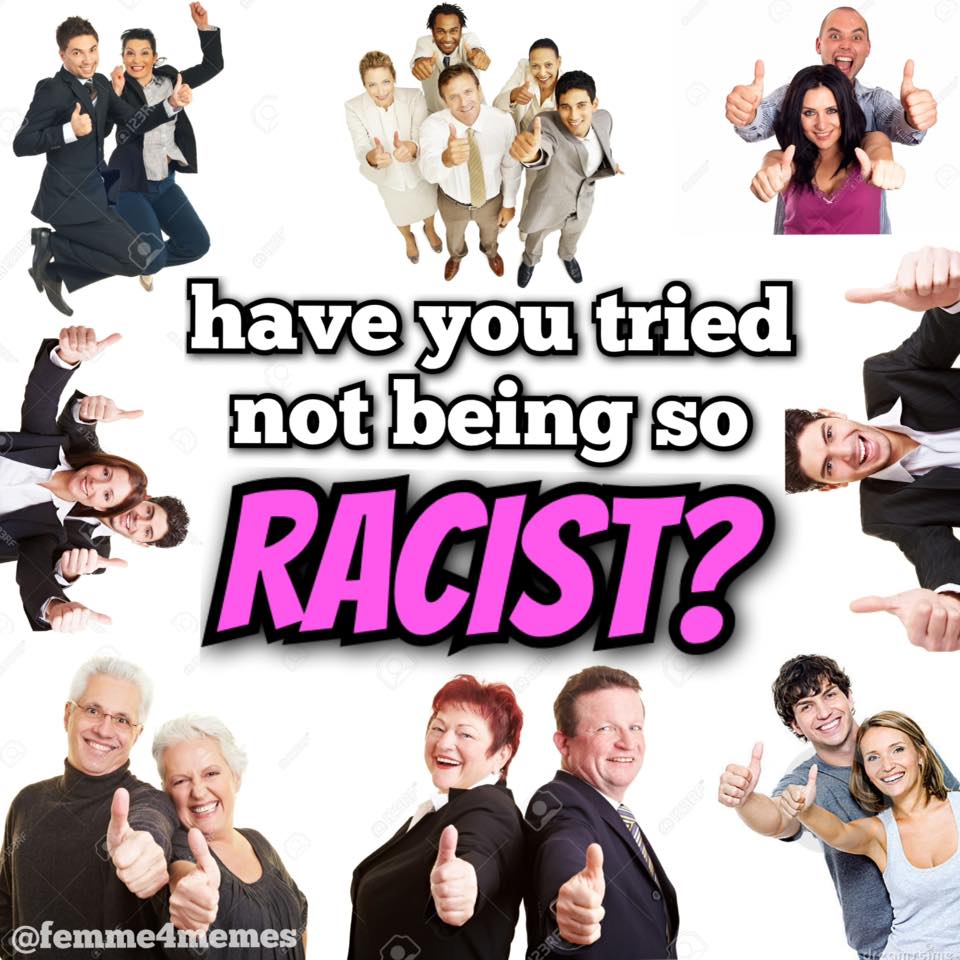
by @femmeformemes


